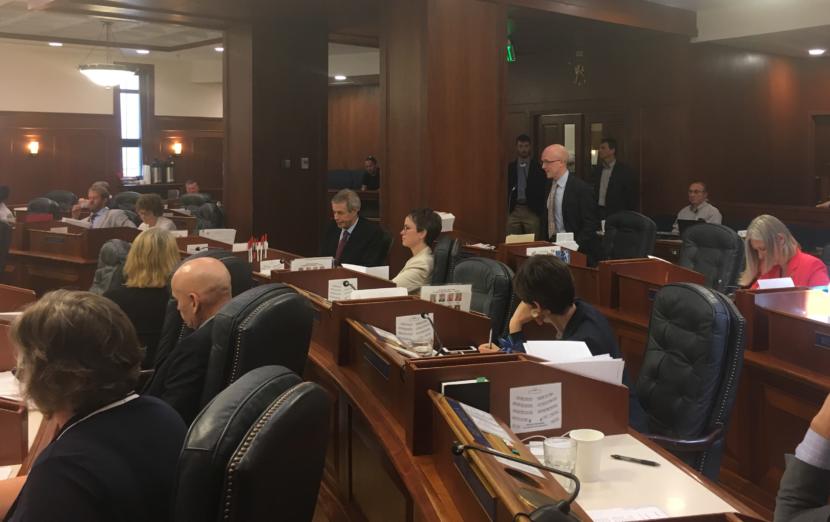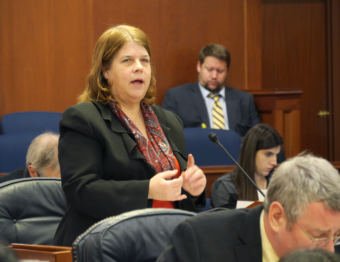
Update (Monday, 11:52 a.m.) — Ryan Cunningham, KTOO
The Alaska House of Representatives failed again to approve funding for the capital budget Monday morning. A measure that would draw funding from the state’s Constitutional Budget Reserve fell one vote shy of the 30 necessary for passage. The final tally was 29-7, with four representatives absent.
The House continued to debate budget issues Monday. Lawmakers have until the end of the month to approve the capital budget, at which point the state could lose close to $1 billion in federal funding.
Original story
The Alaska House of Representatives has failed to pass funding for the capital budget for the second time this year.
Minority-caucus Republicans blocked the funding on Sunday. They did that by voting against drawing from a state piggy bank: the Constitutional Budget Reserve.
If the vote had passed, it would also have allowed the state to maintain 54 separate accounts that fund everything from Power Cost Equalization to medical education to vaccines. It also would have funded a new criminal justice law.

North Pole Republican Rep. Tammie Wilson said she’s open to maintaining some of the accounts, but not all of them. Wilson recently joined the minority caucus.
“Do I think that some of those funds should be able to go back in?” Wilson said. “I’m willing to have that discussion, but not put all of them back.”
Supporters of the funding say it would support 15,000 private sector jobs. Sitka Democratic Rep. Jonathan Kreiss-Tomkins said allowing the separate funds to be swept would be a mistake.
“It just breaks stuff,” he said. “It doesn’t accomplish ideological outcomes. It doesn’t achieve policy goals. It just makes stuff stop working. That’s what it does, and that’s the reason why the sweep has never been debated, negotiated or compromised over.”
Eagle River Republican Rep. Kelly Merrick was the only minority-caucus Republican to vote for the bill. She said she has concerns with the bill, but it’s urgent for the state to receive nearly $1 billion in federal funding that comes with it.
“This bill means good jobs for Alaskans,” she said. “And I am not willing to play politics when there is so much on the line.”
The bill passed by a 27-6 vote — but three-quarters of the House must vote to draw money from the Constitutional Budget Reserve. The separate vote for that was 25-8, falling five votes short.
Seven minority-caucus Republicans were absent: Reps. Ben Carpenter of Nikiski; Mark Neuman of Big Lake; Sara Rasmussen, Josh Revak and Laddie Shaw of Anchorage; George Rauscher of Sutton; and Dave Talerico of Healy.
The Senate passed the bill, 19-0, on Saturday. The Senate changed the bill to include the draw from the Constitutional Budget Reserve before sending it to the House.
The House will have a chance to reconsider its vote Monday, when some of the absent members are expected back. Monday is the 15th day of the second 30-day special session.
Gov. Mike Dunleavy has put funding the permanent fund dividend and the capital budget on the special session’s agenda. Members of both majority caucuses also have expressed an interest in maintaining the separate accounts and restoring funding for at least some of the 182 budget line items Dunleavy vetoed.
